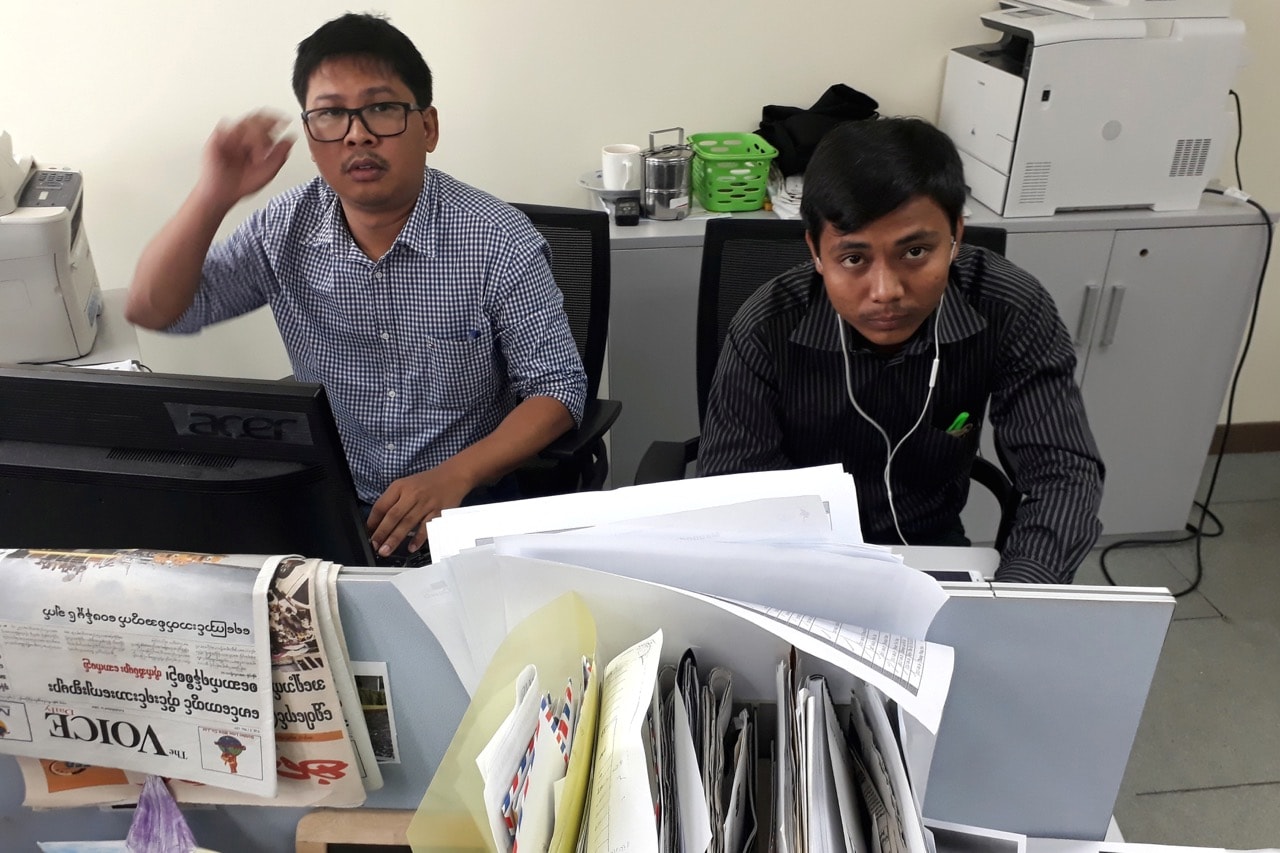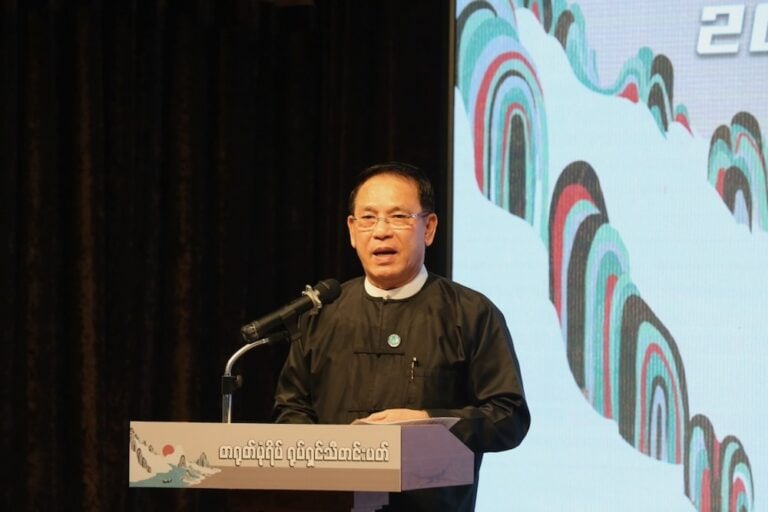Two reporters face 14-year jail terms under the Official Secrets Act for their reporting on Burma's ongoing Rakhine State conflict.
This statement was originally published on seapa.org on 14 December 2017.
The Southeast Asian Press Alliance (SEAPA) asks Myanmar authorities to immediately release two Reuters journalists, who were detained since 12 December 2017, and drop the charges under the 1923 Official Secrets Act.
U Thet Oo Maung (Wa Lone) and Moe Aung (Kyaw Soe Oo) had been reporting the crisis involving the Rohingya when they were arrested in Yangon. Media outlets reported that the police have found in their possession military reports and maps of some areas in Rakhine State.
According to the Ministry of Information, the two “illegally acquired information with the intention to share it with foreign media.”
“The Htauk Kyant Police Station has filed a lawsuit against the two reporters under Article 3 of the 1923 Official Secrets Act for ‘news gathering with an intention to damage the safety and interest of the State,'” according to a news report by The Irrawaddy.
If found guilty, they could be imprisoned for up to 14 years.
“These two journalists are only doing their jobs in trying to fill the void of information on the Rohingya conflict. They should not be jailed for this,” said SEAPA executive director Edgardo Legaspi.
“With this arrest, the government seems to be sending the message that all military reports should be off limits to journalists. It is not clear at this point if the said reports are considered classified. Otherwise, military documents are considered public under the principle of the right to access to information,” he explained.
Reuters president and editor-in-chief Stephen J. Adler said in a December 13 statement that they “have been reporting on events of global importance in Myanmar, and we learned today that they have been arrested in connection with their work.”
“We are outraged by this blatant attack on press freedom,” he added.
“State authorities should provide journalists unimpeded access to the conflict areas in Rakhine State in order to pave the way for public understanding on what is going on,” said Legaspi.
“Instead of guaranteeing the people’s right to know and the journalists’ safety, the authorities have not been transparent in their decision-making and have further restricted journalists’ access since the conflict escalated in late August,” he added.
“The charges are really worrying as the last case of journalists jailed under the Official Secrets Act was the 2014 imprisonment of five journalists from the Unity Journal who were each sentenced to 10 years in prison with hard labor,” said Legaspi.



